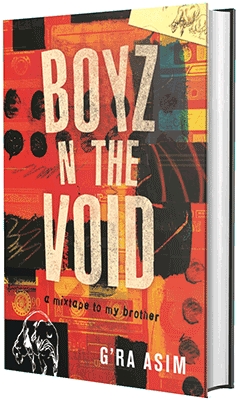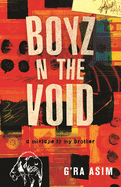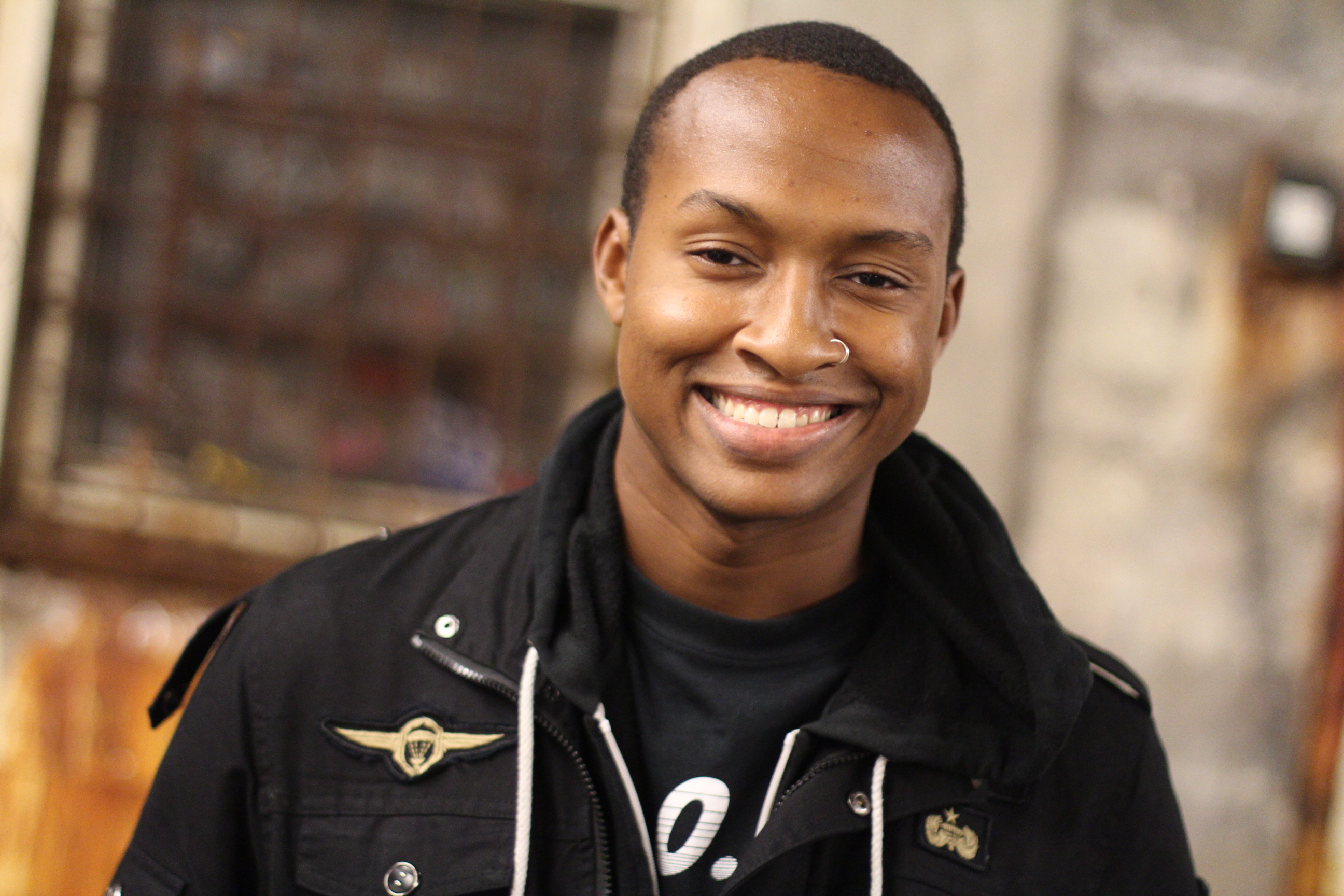Boyz n the Void: a mixtape to my brother
by G'Ra Asim
Boyz n the Void: a mixtape to my brother is an entertainingly discursive ode to the power of punk by writer and punk musician G'Ra Asim. Addressed to Asim's younger brother, Gyasi, Boyz n the Void uses Asim's infatuation with punk as a way into conversations about race, conformity, masculinity and much more. Each chapter is inspired by a specific punk song, from Anti-Flag's "A Start" to Brand New's "Sic Transit Gloria... Glory Fades." While enthusiasts of punk music and culture will be right at home, no knowledge of the genre is necessary to appreciate Asim's insights and his sparky, idiosyncratic writing. In line with the music it celebrates, Boyz n the Void is provocative, opinionated, and fun.
Asim characterizes Gyasi as a "capable but disinterested student" who "predominantly lurks indoors like some Wi-Fi-empowered Boo Radley." He believes that Gyasi might be suffering from a kind of angst similar to that which afflicted him as a teenager, born from "an inability to envision a future in which a person such as he can fit comfortably into a ruthlessly competitive, anti-intellectual, anti-black society." The need to find a place within or in opposition to a relentlessly hostile society is one of Boyz n the Void's main themes, a search that led Asim to punk music and culture. His own loneliness and alienation were assuaged by a genre of music about alienation, one that offered an intellectual sense of anti-authoritarian belonging as well as a physical one in the ritualized chaos of the mosh pit. Asim does not attempt to impress his taste in music on Gyasi or the reader, though his mixtape could serve as an interesting primer; rather, he explains how punk became his refuge from a world that didn't have a place for him.
In Boyz n the Void, the question of belonging is inseparable from that of identity, particularly in Asim's need to rebel against racist assumptions that in his case led to "a lifetime of being called 'oreo' and 'white boy' by people of all races..." which in turn "demanded a consolidation of my blackness at a tender age." He challenges the widespread, racist assumption that racial identity is tied to aesthetic taste. Simply by enthusing over punk aesthetics--a genre that in the past could seem dominated by white men--Asim was "affirming things about myself that, according to an all too pervasive view, belied my physical appearance." These racialized assumptions and expectations only add to the alienation of those like Asim and Gyasi who don't fit into a predetermined mold. In one painful personal anecdote, Asim recalls how a joyful moment enjoying a Taking Back Sunday song quickly collapsed when his prospective date comments: "You like this white boy music but you're dancing like you're black." She backtracks and tries to explain the comment away as a joke, but the damage is done: Asim finds himself once again fighting for his individuality against the suffocating weight of racialized expectations.
Part of what makes Boyz n the Void so enjoyable is the wealth of unexpected digressions. Asim delves deep into contemporary pop culture, for example, offering a number of provocative opinions on everything from Issa Rae and "black normcore" to the state of punk music. Despite or because of his obvious affection for punk, Asim is able to critique the ways in which the supposedly rebellious subculture has so often reinforced the masculine, white-centered status quo. He offers a number of rays of hope, however, highlighting bands that push punk to realize its inclusive promise. While his seeming tangents often loop back around to the questions that preoccupy Asim, along the way he might indulge in a detailed exegesis of a gif of Tahj Mowry from Disney's Smart Guy. Boyz n the Void feels fresh by taking surprising paths to its conclusions, leading readers through an idiosyncratic series of associations that are the product of a highly original mind. Even if you disagree with Asim's (quite strong) opinions, he is never boring.
Much of Boyz n the Void is about rejecting easy labels and avoiding being forced into a box, so it's fitting that the book is an unclassifiable mix of music criticism, memoir, essay and a dozen other components. It's a lively, unpredictable stew with punk music and culture as its inspiration. For anyone looking for an introduction to the joys of punk, Boyz n the Void would more than serve the purpose, and for everyone else, it's worth being reminded that music and other art forms can offer more than a way to pass the time. They can offer transcendence and escape from expectations, a vehicle for feelings that need to be expressed, and belonging for nonconformists like Asim, and, perhaps, Gyasi. --Hank Stephenson




